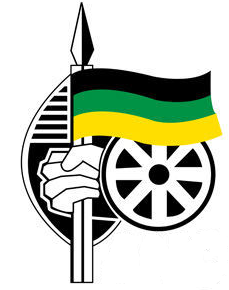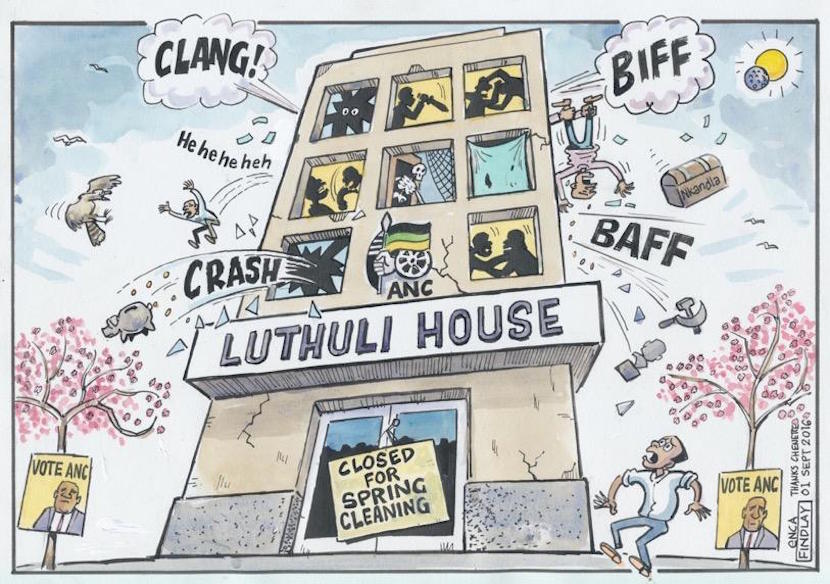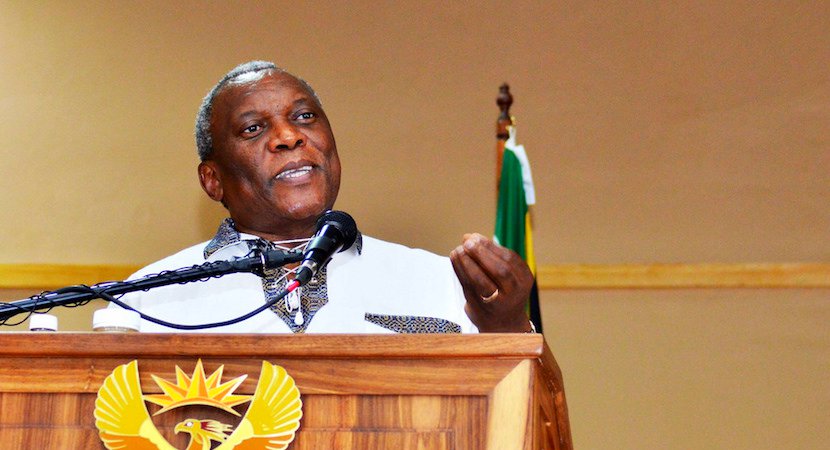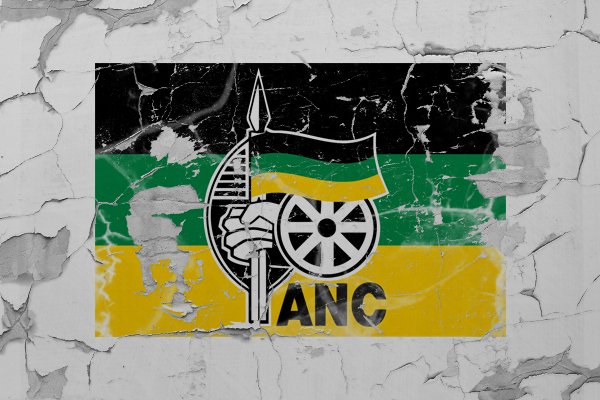This material belongs to: BizNews.

Using his 49 years of covering the South African story, Ed Herbst makes some telling comparisons and observations on corruption and service delivery pre, and post 1994 – which hardly leaves the current ruling party smelling of roses. The word malodorous and that famous line from Hamlet about, ‘there’s something rotten in the State of Denmark,’ come more easily to mind. Herbst picks out the common themes that defined and define the former and current regimes. He draws out what sets them apart, using concrete examples while sparing neither the opprobrium they so richly deserve. The punch line, however, is that at no time did the National Party come close to the current scale of rampant and wholesale corruption. When it comes to service delivery, the skills and competence levels are also worlds apart. Then, of course, there’s the chart-topper and all-time favourite: accountability. Herbst cites examples of skulduggery gone unpunished that make you wonder just what it will take to claw our way back. It makes me realise just how vital institutional knowledge is in creating a balanced picture of where we are. The world inhabited by lesser-questioning and inexperienced youthful commentators are so much narrower and smaller and cannot come close to the perspective provided here. – Chris Bateman
By Ed Herbst*
“The NP promoted and prosecuted a political system which oppressed and disfigured this country, and its security apparatus did far worse. But it was not so forgiving of its own members who looted public office for personal ends. And to the extent that it turned a blind eye, it did not interfere when the departments of justice and correctional services indicted and processed its members, some of them very prominent indeed.
We should hardly mourn the loss of that political system. But in celebrating the democracy which replaced it, we should not avert our gaze from the undertow that came in its wake: the rapaciousness of public life and the lack of consequences for leading transgressors. Unaddressed, these might soon capsize the ship of state itself.”
Tony Leon Business Day 20/8/2013

“Cape Town’s Owl Club traces its origins to 1894 and I was invited to be the guest speaker at its most recent monthly meeting. Later in the evening, after my talk – which sought to compare corruption in the National Party and subsequent ANC (African National Congress) eras – I was approached by Dave Steward. He said that in his 30 years as a civil servant during the National Party era he was never offered a bribe and he made a similar point in a letter to Business Day in 2013:
“I cannot think of any cabinet minister or directors general who retired as rich men – certainly not on anything like the scale of so many today.”
It was a convivial occasion of good companionship and good food leavened with musical interludes by a young baritone from the SA College of Music at UCT, Ntando Ngcube.
Before I left I was asked to sign a venerable volume which contains the signatures of the hundreds of guest speakers who had preceded me – among them Mark Twain and Jan Smuts, who was a member of the club.
I append below a precis of my talk:
“This talk is based on my personal and subjective perceptions gleaned in a continuing 49-year career in journalism.
Its essence is my belief, rightly or wrongly, that corruption during the National Party era was long-term, Tammany Hall stuff using insider information on government-funded projects to profit a few years down the line. The government’s announcement in the late 1960s that a steel factory would be built at Newcastle provided an example.
I started my news career as a photographer on the Natal Witness in 1968 and this story starts when I was sent on assignment to follow up a tip-off about two years later about the building of the Iscor foundry in Newcastle – now run by ArcelorMittal.
At that time black people were not allowed to work as brick layers in terms of the job reservation laws of the era. This created a problem for Iscor because there were not enough white bricklayers available to build the factory and the houses needed for staff.
The problem was solved by employing black bricklayers but giving them garden trowels which had been hammered flat. Because they were not using conventional bricklayer tools, they supposedly did not qualify, in a technical sense, as bricklayers according to a convenient National Party rationale which was suffused with contemporary political sophistry.
I thus found myself lying in long grass on the perimeter of the project with a telephoto lens filming black bricklayers using garden trowels but that is not the essence of this talk.
The National Party took a decision to build the Iscor Newcastle foundry in May 1969 and production started in 1971.
During my visit, Newcastle residents told me that a few weeks before the announcement that Iscor would build a foundry in Newcastle, people who were not known to locals started buying up properties in the town at what seemed like exceptionally favourable prices. When the announcement came, townspeople realised they had been duped.”
Hitachi scam
“The property purchasers were later discovered to be employees of a company which had several National Party ministers on its board at the time and that company profited handsomely from the subterfuge – much as its modern day equivalent, Chancellor House profited from the Hitachi boiler scam decades later at Medupi (power station).
I have been told that by the time the announcement was made in the 1970s that an air force base would be built at Hoedspruit, the farms utilised by the state for this purpose had been bought several years before by people close to the military establishment and I have heard that the same principle applied to properties surrounding Jozini Dam.
That is speculative conjecture based on hearsay but there can be no doubt that corruption at municipal government level during the National Party era and in our state-owned enterprises was virtually non-existent when compared with what has happened since 1994 and what is happening at present.”
Pervasive corruption
“The current corruption at municipal level is pervasive and systemic and this did not occur during the National Party era. The looting of more than R2 billion between 2003 and 2006 – when the ANC controlled the Cape Town municipality – through tender scams like Big Bay, Jewellery City, N2 Gateway, Thubelisha Homes and BTH Construction was unprecedented and only ended when the people of Cape Town chose to rid themselves of the ANC scoundrels at the ballot box. The same ANC looting occurred at provincial level in the Western Cape – to the revulsion of a few ANC MEC’s. In municipalities like Johannesburg, DA (Democratic Alliance) politicians like Herman Mashaba are now beginning to uncover the extraordinary extent of corruption that occurred for two decades under the crooked-to-the-core creators of Africa’s newest kleptocracy.
An article on the BusinessTech website highlights the fact that 19 of the worst-administered municipalities in South Africa are controlled by what is now known as Lootfully House and nine out of ten of the best-run municipalities are controlled by DA councils.
 There are various ways to measure then-and-now corruption and the consequences, particularly for the poor and Eskom provides a useful example.
There are various ways to measure then-and-now corruption and the consequences, particularly for the poor and Eskom provides a useful example.
In the 1960s the National Party government built power stations like Taaibos, Highveld, Komati, Camden, Hendrina, Grootvlei and Kriel on time and within budget.”
Eskom’s ANC corruption
“Contrast that with Medupi. Work started in 2008 and the last of six turbines were supposed to be operational by 2015 – it now looks like 2021.
Projected cost in 2008 was R69 billion – it is now more than R200 billion.
 There were no large scale electricity failures before 1994 – even Ben Ngubane, Brian Molefe, Matshela Koko, Anoj Singh (and all their snouting predecessors) would have to concede that.
There were no large scale electricity failures before 1994 – even Ben Ngubane, Brian Molefe, Matshela Koko, Anoj Singh (and all their snouting predecessors) would have to concede that.
Under the National Party government the trains ran on time and weren’t routinely set alight. Back then we did have a specialised arm of the police called the Railway Police but we did not have the unused CCTV technology now available to the ANC. Who benefits from train sabotage other than the taxi industry and why do the criminals responsible never face justice?
Let’s take another then-and-now measure – presidential houses. Compare P W Botha’s modest home Die Anker which he bought with a bank loan and paid off over decades like everyone else and Nkandla.”
ANC wives
“What about the wives?
I am unaware of any National Party politician’s wife being charged or going to jail.
Under the ANC in 2011 we have had Sheryl Cwele, the wife of our then State Security minister Siyabonga Cwele, being sentenced to 12 years in jail for drug trafficking and in 2014 we had Portia Sizane, wife of Stone, former ANC chief whip and now our ambassador to Germany, appearing in court on 16 counts of fraud, and 15 of money laundering relating to a ghost teacher scam.

And talking of drug trafficking, I can’t recall any convicted drug dealer being employed in the diplomatic service during the National Party era.”
Let’s take education
“Wendy Luhabe and Mamphela Ramphele were the first to suggest that the quality of education was better under the apartheid government, sentiments that Wits (University of Witwatersrand) academic Rabelani Dagada concurs with. The National Party did not, however, have to contend with Sadtu and it did not have to contend with a teaching work ethic which Sadtu and the ANC seem to have no qualms about.
As a reporter I covered university protests against the National Party’s exclusionary ethnic policies in Pietermaritzburg and Cape Town in the 1970s and 80s and no property was damaged and no attempts were made during those protests to kill people. It is different now – all part of the ANC’s ‘good story to tell’.
Another useful then-and-now corruption comparison is the big scandals that rocked the National Party and the ANC in their different eras. For the Nats it was the Info Scandal which ended the political careers of John Vorster and Connie Mulder. Eschel Rhoodie and his cronies partied hard but there is no evidence that they or any of the politicians involved took bribes and backhanders. No political careers were ended by the Arms Deal revelations and a lot of people, Joe Modise and Fana Hlongwane, to name just two, did very well out of that nefarious saga – with the full support, unsurprisingly, of the ANC.
Furthermore, I can think of no Schabir Shaik or Gupta equivalents during the National Party era.”
The ANC’s killing fields
“There is no evidence either to indicate that National Party members hired hitmen to kill fellow politicians in their own party whose jobs and access to tenders they coveted. Under ANC governance – in KZN alone – sixty people died in suspected political hits between April 2014 and August 2016. Such murders have now become so commonplace that a commission of inquiry has been established to investigate what has become an almost weekly slaughter in which the criminals, unsurprisingly, never face justice.
Perhaps government at all levels worked better under the National Party 1) because there was less corruption and 2) because civil servants in an era before cadre deployment were, to a greater extent, better equipped academically and had an appropriate work ethic – something which hardly exists today. In this connection, Jacob Dlamini provides useful insights about the National Party era in his book Native Nostalgia.
In 2006 Tito Mboweni praised his Afrikaans Reserve Bank staff saying:
“I have sought to recruit many competent black people, and no sooner have we recruited and trained them than they leave. I get so upset…I am stopping this recruitment of black people. I am okay with my Afrikaners. They stay and do the work, and become experts.”
As Tony Leon points out in the anchor quote to this article a different ethos prevailed within the National Party when compared with the current ethos of the ANC.
- The Nats jailed their criminals like Pietie du Plessis and Hennie van der Walt
- Their criminals served their full jail terms
- They did not afford their criminals a hero’s send-off when they started their jail terms as was the case with Alan Boesak and Tony Yengeni
- They did not give the corrupt National Party politicians state funerals broadcast live for nearly two and a half hours by the SABC as was the case with Sicelo Shiceka
- They frowned on adultery which, in the ANC, seems to be an almost obligatory CV requirement
- I am unaware of any record of a National Party politician being accused of sexual harassment which seems to have been an enduring theme over decades in ANC annals
To what can this difference be ascribed?
On the National Party side I would say that the NG dominies and their Calvinistic ethos played a role.”
Making the country ungovernable
“On the ANC side, my subjective perception is that once the ANC in exile called on its members inside South Africa not to pay for services such as electricity provision and to make the country ungovernable, the genie was out of the bottle. Furthermore, the Arms Deal and the ensuing Tsunami of Sleaze did not help to inculcate a culture of ethical probity among those now employed in the ‘transformed’ public sector.
As an aside – the best the National Party could come up with when cosying up to despots was Alfredo Stroessner. Now, under the ANC’s ‘Despot’s Democracy’ you are spoilt for choice – ask Omar Al-Bashir, he’ll tell you!

In April 2014, the Premier of New South Wales, Barry O’Farrell resigned after it was revealed that he had not declared a gift – a bottle of wine. And, in the UK two years later, David Cameron resigned from parliament with immediate effect after the Brexit referendum backfired on his party.
How long before we experience such values, how long before the norms and mores, the checks and balances that exist in advanced democracies like the USA, Britain, France, Germany Scandinavia, Australia and New Zealand, become ubiquitous here and what will it take to make that possible?”
Ed Herbst is a retired veteran journalist who writes in his own capacity.
 info@anticorr.media
info@anticorr.media

